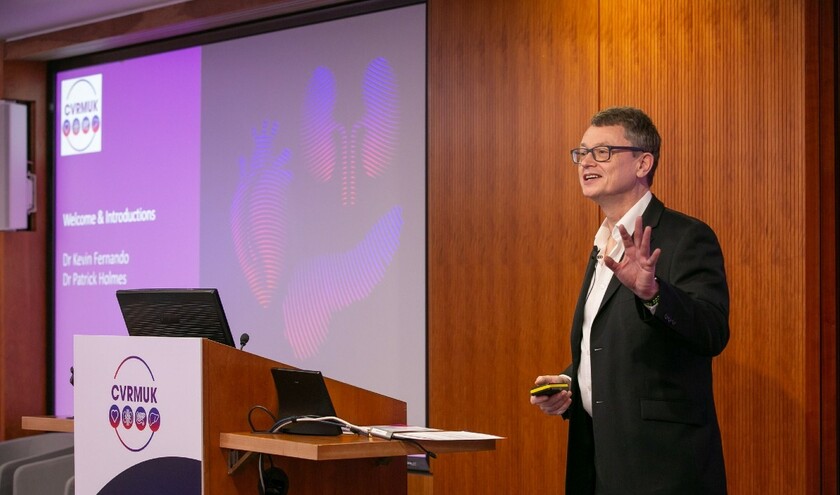Diabetes has emerged as one of the most pressing public health issues in the UK, with Diabetes UK figures estimating more than 5.6m people in the UK are currently living with the condition. As it stands, one in six hospital beds are occupied by a person with diabetes, costing 10% of the total NHS budget spend.
We know the implications of living with diabetes are far-reaching. Every week, the condition leads to more than 190 amputations, 770 strokes, 590 heart attacks and more than 2,300 cases of heart failure. This impacts not only the individuals affected but the broader healthcare system.
The increasing prevalence of diabetes deserves a proactive approach that integrates prevention, early detection and effective management across all levels of care. In order to deliver equitable care, it also requires us to consider our approach when supporting communities where there is a higher prevalence of diabetes. There are a number of ways we can try to bridge the gap, including investing in diabetes technologies and ensuring healthcare policies such as the NG28 guidelines introduced by NICE in 2022, enabling selected people with type 2 diabetes who are administering multiple daily injections of insulin to access glucose sensors, are readily implemented by ICBs across the UK.
As the Primary Care Diabetes Network Lead in the North East and North Cumbria, I've seen first-hand how proactive efforts to tackle variations in access to sensing technology such as Abbott's FreeStyle Libre system for glucose management has resulted in better health outcomes for people living with type 2 diabetes.
Spotlight on North East and North Cumbria
Around 200,000 adults in the North East and North Cumbria are living with diabetes and the area has historically experienced challenges related to variation in the uptake of continuous glucose monitoring (CGM) technology – especially in more deprived areas of the region. However, following a programme of targeted interventions in the North Stockton area working alongside healthcare company Abbott, which included identifying eligible people for the technology, offering face-to-face and virtual clinics and educational material in different languages, there was a 20% increase in uptake of diabetes technology. This supported the ICB's vision of equitable access of CGM technology and ensured the NICE guidelines were implemented effectively.
As a result of this uptake, the area saw not only a reduction in health inequalities between the most deprived and least deprived areas, but also a marked improvement in hypoglycaemia awareness and management, with people reaching their treatment targets, be it HbA1c or Time in Range. By increasing access to diabetes technology, people were able to check their levels more easily, understand the relationship between food and glucose levels, and adjust their activity accordingly.
Empowering people living with diabetes with data from their CGM reduces not only the long-term complications of diabetes but improves their quality of life and reduces hospitalisation in the frailer population from diabetes. And, although the initial set-up and onboarding of people requires a level of time and resource, the long-term benefits I've witnessed include a more sustainable workload and progress within some of the most complex cases.
Integration of primary care and secondary care
In the UK, the growing prevalence of diabetes lends itself towards a coordinated approach between primary and secondary care that ensures people receive comprehensive care across all stages of their condition, wherever they live.
By doing this, practices will feel more supported with their complex and vulnerable patients.
An example of this is Ken Tait who has been living with type 2 diabetes for 25 years.
When he moved from Scotland to Kent, he experienced a change in the diabetes care he received, being moved from specialist secondary care in Scotland to primary care in England, alongside various changes in his local healthcare provider contact.
In a bid to regain some control, Ken decided to start a local support group which he hoped would act as a forum to discuss diabetes and the current care provided in the area.
As a result, he has become a keen advocate for access to diabetes care, and in 2021, he self-funded his use of Abbott's FreeStyle Libre 2 system which, at the time, wasn't available via the NHS for people living with type 2 diabetes.
He described it as a complete revelation. He could see what was happening in his body, and how the food he ate and exercise he did affected his glucose levels, helping him to manage his diabetes 24/7, 365 days a year.
Ken, among many others, has been left feeling empowered by taking control and I've seen first-hand how the technology can motivate my patients in a way I couldn't imagine.
That is why I believe we need to ensure access to this technology to all those currently eligible for it.
As healthcare leaders, we can look to drive change going forward through a multi-faceted approach, by fostering collaboration, promoting education and ensuring access to the best possible care for all patients, while shaping a future where diabetes is no longer a burden on our healthcare system, but a manageable condition within a well-coordinated framework of care.



